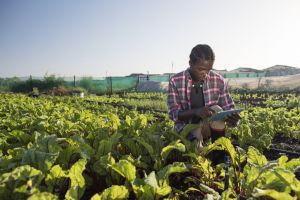The climate crisis necessitates a new extension agenda that prioritizes farmer needs and preferences, and promotes climate resilience and adaptation. US policy should reflect this new extension agenda to ensure farmers have the tools to succeed in providing for themselves, and ultimately, feeding the world.
Climate change is causing more extreme weather events such as flooding, droughts, and heatwaves. Farmers are seeking to quickly adapt to a crisis that is worsening with time. Tools that were previously used by farmers, however, may no longer be effective to combat changing conditions. Agricultural extension plays an equally critical role in delivering those findings and innovations to farmers, ensuring they have the best information and tools available for success.
The climate crisis requires a global response, and it is now more urgent than ever to equip farmers worldwide to address these challenges. The United States has a long history in international agricultural extension with mixed results, as some initially successful efforts did not endure. With our strong R&D and extension infrastructure, the United States has the opportunity to reevaluate and bolster its international extension efforts and provide global leadership to more effectively deliver on taxpayer dollars and provide smallholder farmers the assistance they need.
Farmers require accurate and context-appropriate innovations and knowledge to address climate challenges and provide food-secure futures for themselves, their communities, and the world. A revised extension agenda must account for the abundant possibilities provided by information and communications technology (ICT), as well as ensure new innovations and knowledge are sustainable environmentally, financially, and locally. While this brief is not intended as a comprehensive review, it examines current US international agricultural extension efforts, identifies gaps, examines best practices, and proposes policy recommendations for a new extension agenda.

